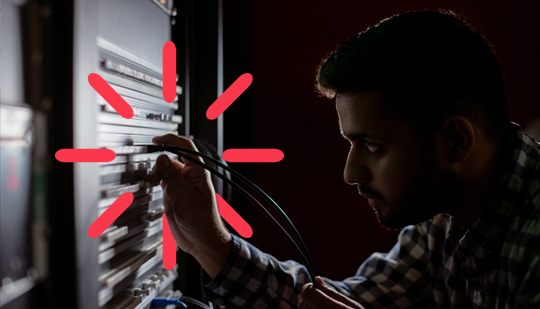In the evolving landscape of digital content delivery, uninterrupted streaming has become not just a luxury, but a necessity. Whether it’s live sports, music concerts, virtual events, or on-demand video platforms, audiences expect flawless streaming experiences. At the heart of this seamless performance lies an essential piece of infrastructure: streaming dedicated servers. These powerful, purpose-built systems are transforming how content is delivered to viewers around the globe.
What Are Streaming Dedicated Servers?
Streaming dedicated servers are high-performance physical servers specifically configured to handle the demands of streaming media. Unlike shared servers or basic hosting solutions, these servers allocate all hardware resources—CPU, RAM, bandwidth, and storage—to a single client or service. This exclusive access ensures that streaming operations are not interrupted by external users or other applications running on the same machine.
These servers are optimized for media encoding, real-time data transmission, and content delivery networks (CDNs), making them ideal for platforms that prioritize video and audio delivery.
Why Choose Dedicated Servers for Streaming?
1. Performance and Reliability
The primary benefit of using streaming dedicated servers is unmatched performance. Live streaming requires consistent bandwidth and low latency to deliver real-time video without buffering. Dedicated servers provide this by offering scalable bandwidth, powerful processors, and large memory capacity—all crucial for handling high-resolution video streams.
2. Enhanced Security
Streaming platforms often deal with proprietary content or live broadcasts that require secure transmission. Dedicated servers offer advanced security protocols, firewalls, and encryption tools that protect content and user data from cyber threats.
3. Custom Configuration
With a dedicated server, content providers can customize hardware and software to suit specific streaming requirements. Whether it’s installing specialized encoding software or configuring high-speed SSD storage for faster data access, the level of control and flexibility is unmatched.
Key Use Cases of Streaming Dedicated Servers
Live Events
Concerts, sports matches, and conferences streamed in real-time rely on robust servers to maintain uptime and quality. Streaming dedicated servers support these high-traffic, time-sensitive broadcasts efficiently.
OTT Platforms
Over-the-top (OTT) media services like Netflix or Hulu require vast server infrastructure to store, encode, and stream content on demand. Dedicated servers help them manage large media libraries and support concurrent user access.
E-Learning and Webinars
Educational institutions and corporate trainers use video extensively for remote learning. Streaming dedicated servers ensure smooth delivery of live and recorded lectures, enhancing user engagement and accessibility.
How They Support Scalability
One of the standout features of streaming dedicated servers is their ability to scale with demand. As viewership increases, additional resources can be provisioned without sacrificing performance. Many providers also offer load balancing and CDN integration to distribute content efficiently across geographic locations, reducing latency and server load.
Choosing the Right Server for Your Streaming Needs
When selecting a streaming dedicated server, consider the following:
-
Processor Power: Look for multi-core CPUs for faster media processing.
-
RAM & Storage: More RAM and SSDs ensure quick access and minimal buffering.
-
Bandwidth Limits: Unlimited or high-bandwidth packages are crucial for HD/4K streaming.
-
Uptime Guarantee: Aim for providers offering at least 99.9% uptime.
-
Support & Maintenance: 24/7 technical support is essential for live content services.
The Future of Streaming Infrastructure
With the rise of 4K, 8K, VR, and AR content, the demand for faster and more efficient delivery mechanisms will only increase. Streaming dedicated servers will continue to evolve, incorporating AI-powered analytics, edge computing, and faster connectivity to meet these next-generation requirements.
Conclusion
Streaming dedicated servers are a cornerstone of modern content delivery. They offer the speed, reliability, and scalability needed to meet the ever-growing expectations of digital audiences. Whether you’re a startup building a niche streaming platform or an enterprise managing global content distribution, investing in dedicated server infrastructure is a strategic step toward delivering exceptional user experiences.


